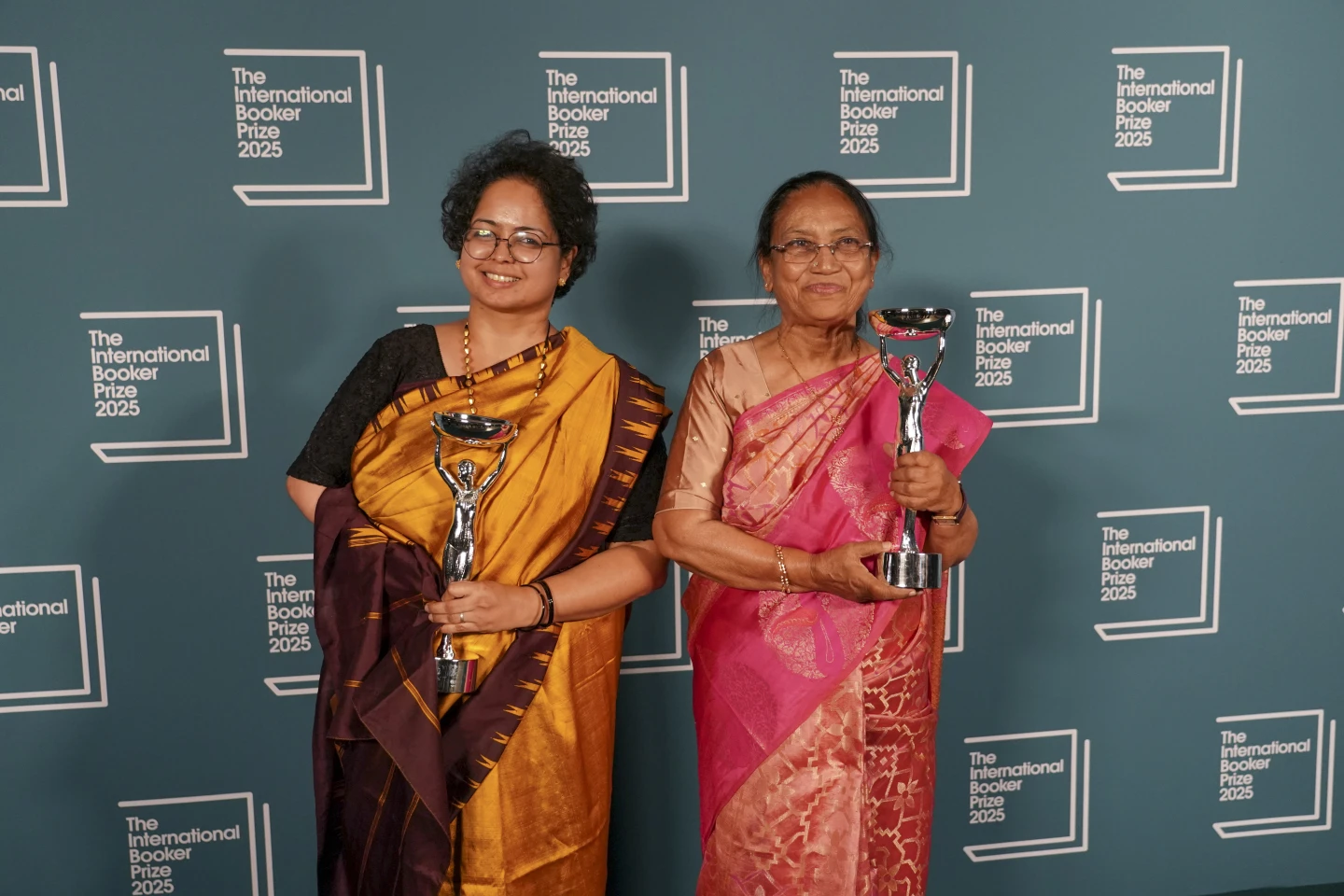Indian writer, lawyer and activist Banu Mushtaq has won the 2025 International Booker Prize for her short story anthology, Heart Lamp, penned in Kannada.
Heart Lamp is an anthology of 12 stories highlighting the daily lives and challenges of Muslim women in Karnataka for 30 years, from 1990 to 2023. Mushtaq’s characters exude resilience and resistance, reviving hope.
Mushtaq said, “My stories are about women – how religion, society, and politics demand unquestioning obedience from them, and in doing so, inflict inhumane cruelty upon them, turning them into mere subordinates. The daily incidents reported in the media and the personal experiences I have endured have been my inspiration. The pain, suffering, and helpless lives of these women create a deep emotional response within me. I do not engage in extensive research; my heart itself is my field of study.”
The writer shares the recognition with Deepa Bhashti who translated the work into English.
Bhasthi said, “For me, translation is an instinctive practice, and each book demands a completely different process. With Banu’s stories, I first read all the fiction she had published before I narrowed it down to the ones that are in Heart Lamp. I was lucky to have a free hand in choosing what stories I wanted to work with, and Banu did not interfere with the organised chaotic way I went about it.”
Mushtaq grew up in a small town in the southern state of Karnataka in a Muslim neighbourhood. In line with her peers, she studied the Quran in the Urdu language at school. However, her father, a government employee, wanted to educate her further. Subsequently, at the age of eight, Mushtaq enrolled in a convent school with Kannada as the medium of instruction.
She started writing while she was still in school and opted for a college education while her contemporaries chose marriage and children. Mushtaq’s short story appeared in a local magazine a year after she had married at the age of 26.
The writer started working as a reporter in a prominent local tabloid. Additionally, she was associated with the Bandaya movement. It focused on throwing light on social and economic injustices via literature and activism. After leaving journalism a decade later, Mushtaq started working as a lawyer to support her family.
Over her distinguished career, the writer has published an impressive amount of work. This includes six short story collections, a novel, and an essay collection. She has been recognised by the Karnataka Sahitya Academy and the Daana Chintamani Attimabbe awards for her exemplary contributions.
Moreover, in 2024, the translated English compilation of Mushtaq’s five short stories, published between 1990 and 2012, Haseena and Other Stories, won the PEN Translation Prize. Despite the adulation, her works attracted hatred for her propagation of women’s rights.


